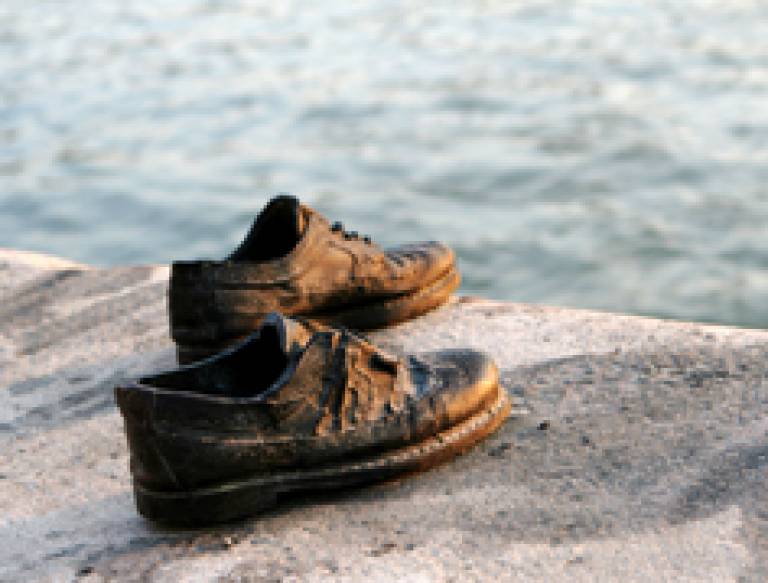The Impact of WWII on European Society and Culture
23 June 2016, 12:00 am

Event Information
Open to
- All
23-24 June 2016
The genocidal Second World War in Europe is notable for the
distinction - made in radically varying ways by different people -
between what was perceived as 'legitimate' violence, and what went
'beyond' the kinds of violence that might be expected during wartime. This international and interdisciplinary conference addresses questions of individual responsibility within collective violence, and how to think and write about past events and one's own role in it.
|
When: Where: Please register below - tickets are free but do let us know you're coming. |
Overstepping boundaries, whether through complicity, collaboration, 'excess' brutality, betrayals, wilful profiting from the distress of others, or in a myriad of other ways, was a widespread phenomenon, both among Germans and Soviets and among people living in the countries under Nazi and Soviet occupations. Without these various forms of collaboration and engagement with the Nazi or Soviet genocidal machines, the persecution and mass murder of civilians could not have been undertaken on this scale. Many who were involved on the side of the perpetrators sought ways of justifying acts that in other moral universes seem reprehensible, incomprehensible; others felt or claimed that they were mobilised or constrained to act in certain ways, and did not feel they had much choice in the context, raising key questions about structures of power and individual agency. Moreover, the ways in which this genocidal war affected societies across Europe had significant long-term consequences: these conflicts affected interpersonal relations, emotions, and attitudes, as well as material and political positions - legacies that underlie continuing tensions and unease about a past that still haunts us today.
Questions
of individual responsibility within a wider system of collective
violence pose challenges that are not easily resolved. Historians,
journalists and literary scholars also face significant questions about
ways of thinking and writing about these events, and their own roles in
relation to past and present. This conference seeks to address these
issues from a variety of perspectives.
Programme
| Thursday 23 June | |
| 1.30-2.15pm | Registration |
| 2.15-2.30pm |
Welcome, opening remarks |
| 2.30-4.00pm |
I. Borders of complicity and collusion: German society at war
|
| 4.00-4.30pm |
Tea break |
| 4.30-6.30pm |
II. Boundaries of victimhood and collaboration: societies under occupation
|
| 6.30-7.30pm |
Reception (Haldane Room) |
|
7.30-9.00pm |
Overcoming war among neighbours: current debates and history
today Journalist Anna Bikont, who won the European Book Prize for The Crime and the Silence on the 1941 massacre in Jedwabne (Poland), will be in conversation with Alexandra Senfft, whose books examine the transgenerational consequences of National Socialism, including within her own family. They will be joined by Prof Jan Grabowski, a historian of the Holocaust, in a conversation chaired by Prof Mary Fulbrook, Director of the UCL EI. |
| Friday 24 June | |
| 10.30-12.30pm |
III. The cultural mediation of violence
|
| 12.30-1.30pm | Lunch |
| 1.30-3.30pm |
IV. Boundary transgressions: Understanding perpetration
|
| 3.30-4.00pm |
Tea break |
| 4.00-5.00pm |
V. Writing the past: Roundtable discussion: How
do we as scholars and as human beings address this past; and how is our
own positionality implicated in the ways we explore and represent the
violent past? |
| 5.00-6.30pm |
Book launch: Reverberations of War in Germany and Europe since 1945; Stephanie Bird, Mary Fulbrook, Julia Wagner, Christiane Wienand |

 Close
Close

